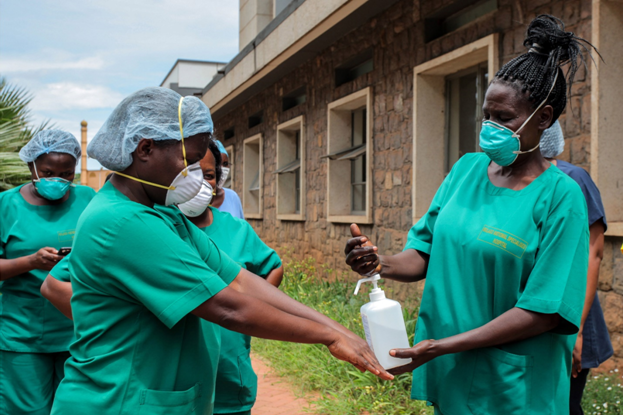Menstral hygiene has become a general concern among many early learners. However, the schools sampled in Kampala indicate that boys never notice when the girls become ‘red’.
On top of telling us that girls are trained to keep their periods a top secret from boys, the Kireka Grammar Day and Boarding Primary School deputy head teacher has advised students to wash hands to avoid contracting COVID-19.
Kevin Apolot, also the school in charge of administration, said they have put in place washing facilities for children because of COVID-19.
“We encourage pupils to wash their hands before and after using toilets and eating food,” she said.
Apolot disclosed that they have flash toilets, wash rooms and dormitories for girls in boarding and day.
She added that the school gets water from taps, boreholes and rainwater tanks.
Tasked to explain how boys treat girls during menstrual period, Apolot said the girls are trained to take care of themselves, adding that they do not mess themselves in class in the presence of boys.
The head teacher of Umea primary school, Madde Makubuya said their boys are too young to harass girls during menstrual period and that the girls are trained how to take care of themselves.
She said senior women teacher in the school also helps the pupils in case they are stranded.
Makubuya also said when new children join school; they first teach them how to wash hands due to COVID-19.
Parents
The schoolteachers have implored parents to impart basic skills and knowledge to children from home.
“Since charity begins at home, parents should train their children so that they come to school with basic skills,” Makubuya advised.
WASH at health centres
Dr. Alex Kizito said at Mengo Hospital, they have water stands in different departments to keep water flowing in case of any scarcity.
He said the washrooms in their health centre are fine and they are in a commendable good hygienic state and well maintained.
“We employ a company to clean wash rooms in my health centre,” he revealed.
Kizito added that water in the hospital is outsourced because there is a company that supplies water in their tanks in the hospital.
He added that they use communal water from National Water and Sewerage Cooperation if the company does not provide.
He, however, said that the hospital faces challenges of sanitation and hygiene. “Most clients come to the health facility and leave the toilets dirty.”
He, therefore, suggested that patients go through health education.
“We deal with clients from different parts of the world, Uganda being a multi-cultural state with about 52 languages. It is hard to get a common language for all clients,” he asserted.
According to Kizito, writings are pinned in areas, where hygiene is most sensitive like in toilets and washrooms.
He said large volume tanks like very many liters can help to avoid those instances like health risks to all health centres.

Recent study
A recent study (2020) around Kampala indicated that improved WASH in healthcare facilities (HCFs) is of significant public health importance.
The study done in November last year, was titled, Assessment of water, sanitation and hygiene service availability in healthcare facilities in the greater Kampala metropolitan area, Uganda.
“It is associated with a reduction in the transmission of healthcare acquired infections (HAIs), increased trust and uptake of healthcare services, cost saving from infections averted, increased efficiency and improved staff morale,” the study said.
However, despite these benefits, there is limited evidence on availability of WASH services in health facilities in the Greater Kampala Metropolitan Area.
Results indicated that overall, 84.5% (49/58) and 12.1% (7/58) of health centres had limited and basic WASH service respectively.
Furthermore, about 48.3% (28/58) had limited water service, 84.5% (49/58) had limited sanitation service, 50.0% (29/58) had limited environmental cleanliness service, 56.9% (33/58) had limited hand hygiene service, and 51.7% (30/58) had limited waste management service.
About 94.4% of public HCFs had limited WASH service compared to only 68.2% of private not for profit facilities. More health centre IIIs, 92.5% and health centre IVs (85.7%) had limited WASH service compared to hospitals (54.5%).



















